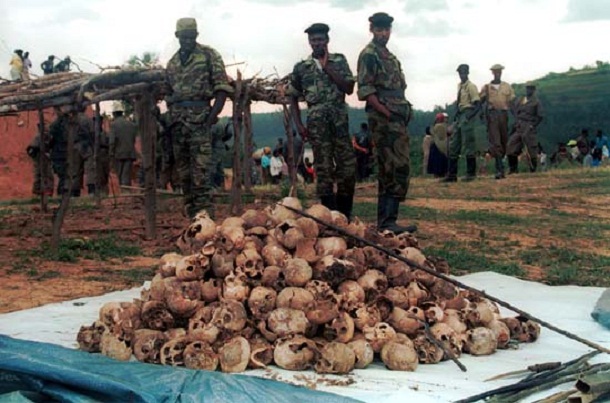The United Nations-backed court the International Criminal Tribunal for Rwanda has over turned the genocide convictions of two Rwandan former ministers and ordered their immediate release.
Justin Mugenzi and Prosper Mugiraneza were sentenced to 30 years in prison in 2011 for their complicity, and incitement, to commit genocide in the Rwanda genocide in 1994.
Mr Mugenzi was the trade minister during the genocide and Mr Mugiraneza the minister in charge of civil servants.
About 800,000 people, mostly ethnic Tutsis and moderate Hutus, were killed in the 1994 Rwandan genocide which is considered one of the bloodiest atrocities committed in Africa.
The International Criminal Tribunal for Rwanda ICTR convicted them on the grounds that they had attended a meeting where a decision was taken to dismiss the prefect of the Butare region in southern Rwanda for preventing massacres from taking place.
The then interim president Theodore Sindikubwabo was reportedly to have urged the Hutus to kill the Tutsis where the two ministers were present at the meeting.
But the appeal judges, however, found that Mr Mugenzi and Mr Mugiraneza did not know that Mr Sindikubwabo was going to make the speech and therefore had no knowledge of what he was going to say.
However, local reports in Rwanda suggest that the Rwandan government is angry with the ruling as it has been criticizing the ICTR of being slow in its work.
Some of the survivors of the genocide known as the Buka Group have condemned the ruling as unfair to those who suffered in the genocide.
“This acquittal is another nail in the coffin of the victims of the genocide, and a smack in the face for survivors of the genocide too,” said Buka head Professor Jean Pierre Dusingizemungu.
“The ICTR has delivered nothing for either the victims or the survivors of the genocide, delivering no compensation for the horrific atrocities committed during the genocide planned and perpetrated by the government of which Mugenzi and Mugiraneza were indisputably members – even though the ICTR denies that they were actively involved.”
The ICTR has repeatedly defended its record, saying that genocide trials at international tribunals are extremely complicated affairs and needs to be studied well before it passes its judgement since it is working to bring justice in Rwanda.
The ICTR will complete its work in 2014 and said it has completed almost 70 cases since it was set up under a UN Security Council resolution in November 1994 to try those involved in the genocide.
Issaka Adams / NationalTurk Africa News
[adrotate banner=”46″]


